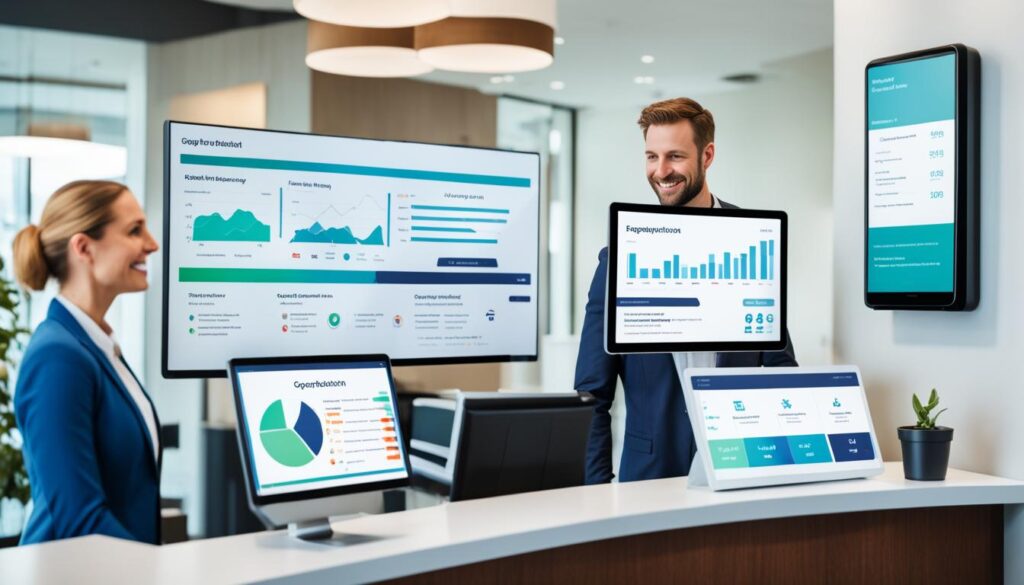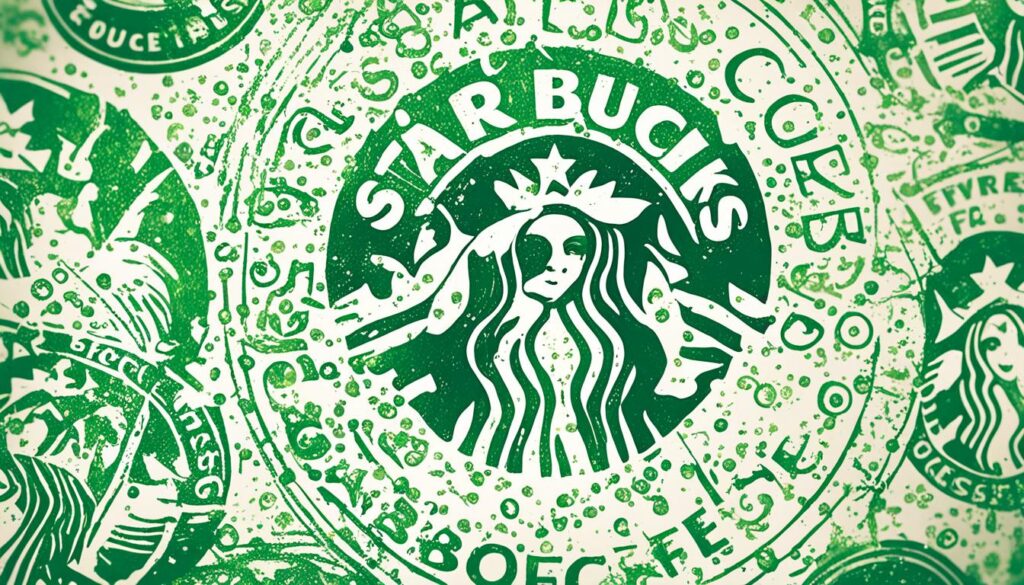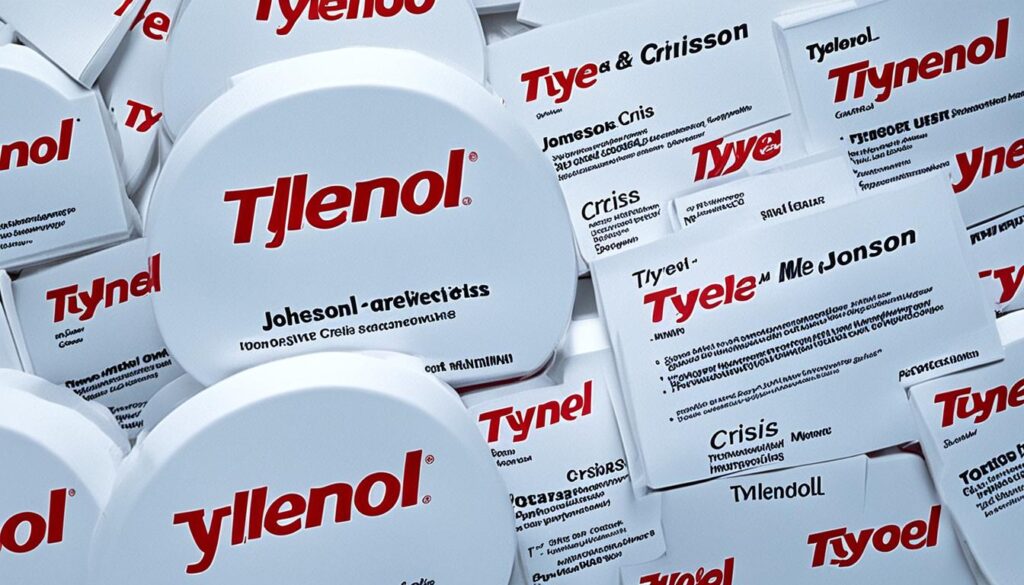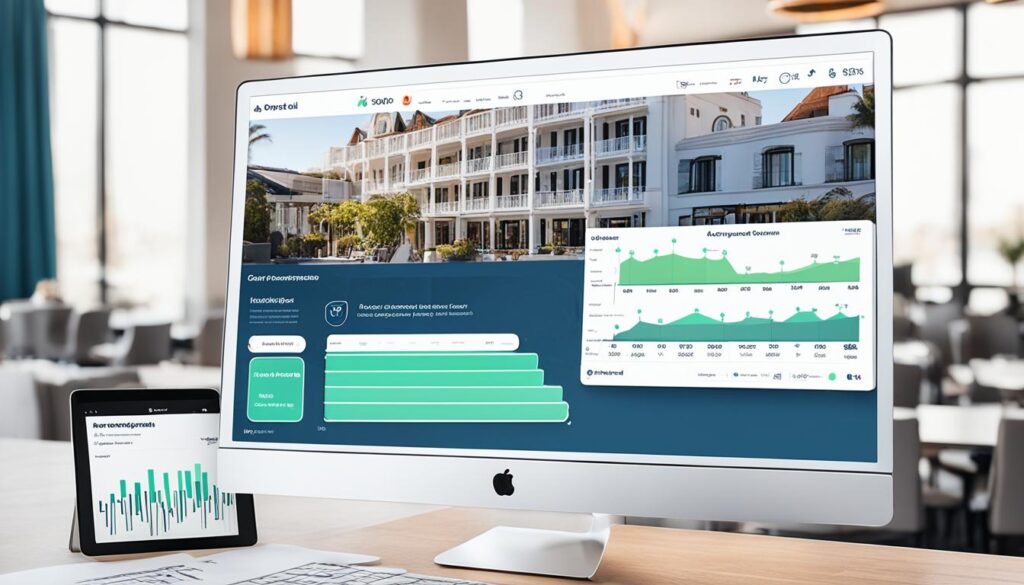Have you ever thought about how one online review can change a hotel’s fate? In today’s digital world, managing your online reputation is key for hotels. With 87% of people checking online reviews before booking, the effect of feedback on a hotel’s success is huge1.
We’ve seen how good reputation management can change a hotel’s image and increase profits. From luxury resorts to boutique hotels, the impact of reviews and online engagement is huge. It’s a big factor in the competitive hotel world.
Did you know 82% of travelers use online reviews to pick where to stay? A small increase in ratings can let hotels raise prices by up to 11.2% without losing guests23. This shows how important managing reviews and crises is for a hotel’s success.
In this article, we’ll look at real examples of how hotels have used guest feedback, managed crises, and improved their brand with smart online reputation management.
Key Takeaways
- Online reviews greatly affect hotel bookings and earnings
- Good reputation management can lead to higher rates and more guests
- Quickly responding to reviews is key for guest happiness
- Handling crises well is important for a good brand image
- Using content from guests can increase direct bookings
- Being open during crises can gain guest loyalty
- Tools for managing reputation are key for keeping an eye on your online presence
The Importance of Reputation Management in Hospitality
In today’s digital world, managing your reputation is key for hotels. Online reviews and social media greatly affect how customers see your brand. A huge 81% of travelers check reviews online before booking a room, showing how big of an impact these reviews have4.
Online reviews are very powerful. 76% of travelers are ready to pay more for a hotel with top reviews. This shows how important it is to manage your reputation well to draw in guests and boost sales4.
It’s crucial to talk to customers through reviews. When hotels reply to reviews, 77% of travelers are more likely to book a room4. This shows you care about making guests happy and helps build a strong brand image.
Online reviews are as trusted as personal recommendations by travelers in the hospitality industry5.
Managing your reputation does more than just shape how customers see you. Hotels that got better reviews could charge 11.2% more for their rooms. This shows a clear link between your online reputation and how much money you can make4.
| Factor | Impact on Positive Rankings |
|---|---|
| Service | High |
| Location | Significant |
| Hotel Attributes | Notable |
Good reputation management helps businesses see where they can get better. By focusing on things like service, location, and what makes your hotel special, you can improve your online image. This can lead to more money for your business4.
Key Platforms for Hotel Reputation Management
In today’s digital world, hotels need to use many platforms to keep a good reputation. Sites like TripAdvisor and Google Reviews are key places where guests share their thoughts. A huge 97% of people look at online reviews before choosing where to stay6.

Online travel agencies (OTAs) like Booking.com and Expedia also affect a hotel’s online image. They help with bookings and have reviews that can sway potential guests. Hotels that talk to guests about reviews, good or bad, tend to keep guests coming back7.
Social media gives hotels a chance to show off and get noticed. By posting great content on Facebook, Instagram, and Twitter, hotels can draw in new guests and keep in touch with current ones7. The hotel’s website is also key for managing reputation, letting them share good reviews and fix issues directly.
Using guest feedback surveys can give hotels important insights on what they’re doing right and what they can do better7. This active approach to managing reputation can really pay off, as a one-star boost in rating can mean a 9% increase in revenue6.
Many hotels use reputation management software to handle their online presence. These tools are made for the hospitality industry, helping hotels keep an eye on reviews, answer quickly, and understand what guests feel68.
Starbucks: Turning a Crisis into an Opportunity
In April 2018, Starbucks faced a major crisis when two African-American men were arrested at a Philadelphia store. This incident sparked outrage across the country and threatened Starbucks’ image. With over 6,000 stores worldwide, Starbucks had to act fast to fix the crisis and protect its brand9.

CEO Kevin Johnson quickly apologized publicly and took a bold step. He closed about 8,000 U.S. stores for racial bias training, impacting around 175,000 employees10. This move showed Starbucks’ dedication to fixing the issue and gaining back trust.
Starbucks did more than just fix the problem. They updated their policies and promised top-notch customer service. They even offer free drinks for small delays, making them stand out and boosting their image11.
“We believe that investing in our customers through superior service pays off in long-term brand loyalty and positive word-of-mouth marketing.”
This event shows how a crisis can lead to positive changes. By acting fast and being open, Starbucks not only recovered from the crisis but also improved its reputation as a socially responsible brand.
| Crisis Management Step | Starbucks’ Action | Impact |
|---|---|---|
| Immediate Response | Public apology from CEO | Demonstrated accountability |
| Concrete Action | Closed 8,000 stores for training | Showed commitment to change |
| Policy Changes | Implemented new customer service policies | Enhanced brand perception |
| Long-term Strategy | Continued focus on customer experience | Built lasting brand loyalty |
Starbucks’ way of handling this crisis is a great example of how to respond and recover as a company. By turning a negative event into a chance for growth, Starbucks proved it’s a leader in coffee and corporate social responsibility.
Johnson & Johnson’s Tylenol Crisis: A Reputation Management Masterclass

In 1982, Johnson & Johnson faced a huge crisis when seven people died from cyanide in Tylenol capsules. They quickly recalled 31 million bottles of Tylenol, worth $100 million, to keep customers safe12.
J&J acted fast, starting a big PR campaign and adding special packaging to stop future problems12. These steps helped save the Tylenol brand, won back customer trust, and increased their market share13.
The company showed they cared about being open and keeping customers safe. They set up a hotline and talked openly with the public. This showed how important trust in a brand is in getting through tough times.
“Companies must have the courage to do what is right, even when it is hard.”
J&J’s way of handling the Tylenol crisis shows how quick and strong actions protect a brand’s image13. Their focus on safety set new standards for the drug industry and crisis handling.
| Action | Impact |
|---|---|
| Immediate product recall | 31 million bottles withdrawn |
| Financial investment | $100 million in recall costs |
| Innovation | Introduction of tamper-evident packaging |
| Communication | Transparent PR campaign |
This story is a lesson in managing a brand’s reputation. It shows how putting safety first, being open, and acting fast can turn a crisis into a chance to build trust with customers.
Reputation Management in the Hospitality Industry: Best Practices
In the hospitality world, having a good reputation is key to success. A positive image helps get more support from stakeholders and gives you a lasting edge over competitors14. We’ll look at some top ways to boost your online image and make guests happier.
Listening to what guests say and responding to their reviews is crucial. A huge 81% of travelers check reviews before they book, and 65% like hotels that talk back15. By engaging with guests, hotels can lift their scores and increase earnings. For eateries, a single star up can mean 5-9% more money16.
Being active on social media is also key to a strong online presence. It shows how people interact with your content, like, comment, and share. Hotels can connect with people right away and build stronger bonds by being active online.
“79% of guests trust online reviews as much as personal recommendations.”16
Here are some top tips for managing your reputation well:
- Answer all reviews, good or bad, quickly
- Ask guests to share their thoughts
- Use what guests say to get better
- Make your website easy to find online
- Send focused emails to your audience
By using these strategies, hotels and restaurants can greatly improve their online image. A better rating means people are 3.9 times more likely to stay with you15. Good reputation management is more than fixing problems; it’s about building a strong image that draws in and keeps guests.
| Metric | Impact |
|---|---|
| 1-point increase in review score | 9% increase in Average Daily Rate (ADR)14 |
| Manager’s response to bad review | 85% improved hotel impression15 |
| Responding to reviews | 30% average star rating increase16 |
Leveraging Technology for Reputation Management
In today’s digital world, the hotel industry is using technology to boost their reputation. AI tools and sentiment analysis change how hotels handle guest feedback. With 95% of travelers checking reviews before booking, hotels must pay attention to their online image17.
Review management software helps hotels keep an eye on and talk to guest reviews on different sites. This is key, as 53% of potential guests won’t book without reading reviews17. Social listening tools let hotels quickly address any issues mentioned online.

Hotels are now using mobile check-in, keyless entry, and digital concierge services to make things easier for guests. These tech tools make things more convenient and lead to better reviews18. Real-time data analysis helps hotels predict and adjust prices, making more money18.
Some hotels are getting creative with virtual reality for marketing and engaging with guests. This tech lets them show off what they offer and create exciting experiences before guests arrive18.
| Technology | Benefits |
|---|---|
| AI Tools | Analyze guest sentiment, identify trends |
| Review Management Software | Monitor and respond to reviews efficiently |
| Social Listening Tools | Track brand mentions, enable quick responses |
| Mobile Check-in/Keyless Entry | Streamline guest experience, encourage positive reviews |
By using these technologies, hotels can greatly enhance their online reputation. This leads to more guests and more profit17. The future of hotels is about combining technology with personal guest experiences.
Conclusion
In the fast-paced hospitality industry, having a strong reputation strategy is key to success. We’ve seen how good reviews can really help a hotel’s finances. For example, a one-point increase on TripAdvisor could lead to a 1.42% rise in Average Daily Rate (ADR)19. This shows how important guest satisfaction is to a hotel’s success.
Managing your reputation is more than just answering to feedback. It’s about building a positive image that keeps guests coming back. Hotels that talk to guests and use their feedback to get better tend to see more bookings and higher revenue20. In fact, a 10% better review score can mean a 4.4% jump in sales21.
Technology will play an even bigger role in managing reputations in the future. Tools like social listening and automated responses help hotels keep up with what guests think and answer quickly to their concerns21. As the internet changes, hotels that focus on their online image and adapt to what guests want will do best in the competitive market.
FAQ
Why is reputation management important in the hospitality industry?
What are the key platforms for hotel reputation management?
What can hotels learn from Starbucks’ response to the racial bias incident?
What can we learn from Johnson & Johnson’s handling of the Tylenol crisis?
What are some best practices for hotel reputation management?
How can technology help with reputation management?
Source Links
- Online Reputation Management: Navigating the Impact of Social Media and Online Reviews – https://www.linkedin.com/pulse/online-reputation-management-navigating-impact-social-mário
- Hotel Reputation Management: Strategies and Technology – https://www.altexsoft.com/blog/hotel-reputation-management/
- The Ultimate Guide to Hotel Reputation Management – https://www.canarytechnologies.com/post/hotel-reputation-management
- The Importance of Hotel Reputation Management for Increasing Direct Bookings – https://www.cartstack.com/blog/hotel-reputation-management/
- Importance of Hotel Reputation Management | KEEN™ – https://www.keenreputation.com/importance-of-reputation-management
- Hotel Reputation Management Guide | InMoment – https://inmoment.com/blog/hotel-reputation-management/
- Hotel reputation management: 9 proven recommendations for hotels in 2024 – https://www.lingio.com/blog/hotel-reputation-management
- Hotel Reputation Management (RMS) – Improve Your Reputation Score – https://www.innsight.com/hotel-restaurant-reputation-management
- Brand and Reputation Management – Starbucks – https://www.slideshare.net/slideshow/brand-and-reputation-management-starbucks-234481244/234481244
- Reputation Management Case Studies: Big Brand Turnarounds – https://bryghtpath.com/reputation-management-case-studies/
- Reputation Management: Starbucks Offers A Simple Lesson In Good Customer Service – https://yaro.blog/reputation-management/
- Examining Successful Brand Crisis Management Examples – FasterCapital – https://fastercapital.com/topics/examining-successful-brand-crisis-management-examples.html
- Johnson Johnsons Response – FasterCapital – https://fastercapital.com/keyword/johnson-johnsons-response.html
- Hotel Reputation Management: Best Practices for 2024 – https://stasher.com/blog/hotel-reputation-management/
- 10 tactics for successful hotel reputation management – https://www.cloudbeds.com/articles/10-tactics-for-successful-hotel-reputation-management/
- Restaurant Reputation Management: Tips for Success – https://blog.marqii.com/restaurant-reputation-management-tips-for-success/
- Enhancing Guest Satisfaction with Online Reputation Management Tools – https://moldstud.com/articles/p-enhancing-guest-satisfaction-with-online-reputation-management-tools
- Leveraging Technology for Smart Revenue Management in Hospitality – https://www.linkedin.com/pulse/leveraging-technology-smart-revenue-management-yuri-hidalgo-alonso-lu5af
- Why Effective Reputation Management Is Key To Increasing Hotel Revenue – Lybra Tech – https://lybra.tech/why-effective-reputation-management-is-key-to-increasing-hotel-revenue/
- The Importance and Impact of Online Reputation Management for Hotels and Its Influence on Average Daily Rate (ADR) – https://www.linkedin.com/pulse/importance-impact-online-reputation-management-hotels-paul
- Hotel reputation management | What are the best strategies? – https://www.mews.com/en/blog/hotel-reputation-management

